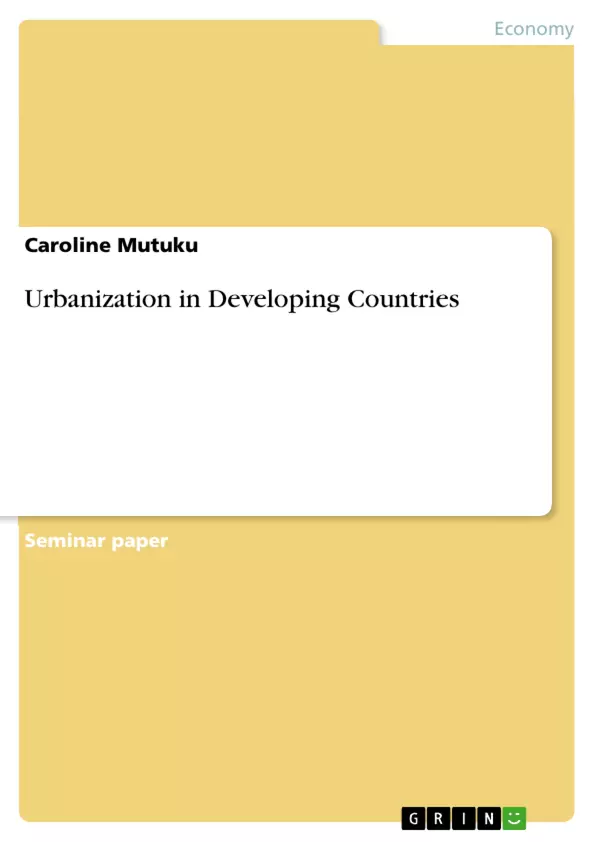Urbanization is defined as the influx and increase of the number of people who live in the cities and major towns in the country, and it is caused by movement of people from rural areas to urban areas.
The movement of people from rural to urban centers occurs mainly due to increased population pressure and limited resources available for a large population in the rural areas. Global change can be mostly associated to urban drift, and it contributes mostly to the people moving to the cities and towns. Most people move to urban centers in search of jobs and better living standards which are associated with urban areas. Various arguments have been advanced by scholars on whether urbanization is sustainable or unsustainable.
In order to understand the sustainability of urbanization it is good to consider economic, social, political, cultural and environmental effects of urbanization. The increase in urbanization occurred during the industrialization period which took place in Europe in the late nineteenth and early twentieth century. During this period, large masses of people moved from rural areas to urban areas in search of employment in the industries, but this phenomenon is now being witnessed in developing countries where industrialization is assuming upward trends.
This paper will provide an overview of urbanization in developing countries, especially regarding its sustainability.
Inhaltsverzeichnis (Table of Contents)
- Introduction
- Impacts of Urbanization
- Negative Impacts of Urbanization
- Positive Impacts of Urbanization
- Impacts of Urbanization in Pakistan and Bahrain
- Sustainability of Urbanization in Developing Countries
- Challenges to Urban Sustainability
- Appropriate Approaches to Urban Sustainability
Zielsetzung und Themenschwerpunkte (Objectives and Key Themes)
This paper investigates the sustainability of urbanization in developing countries by examining its social, economic, political, cultural, and environmental effects. The study focuses on the challenges and opportunities presented by rapid urbanization, particularly in the context of Pakistan and Bahrain.
- The impacts of urbanization on developing countries
- The challenges to urban sustainability in developing countries
- The role of urban planning and institutional capacity in achieving sustainable urban development
- The potential of urbanization to drive economic growth and social progress
- The need for a balanced approach to urbanization that considers both its benefits and drawbacks
Zusammenfassung der Kapitel (Chapter Summaries)
The introductory chapter provides an overview of urbanization, defining it as the influx and increase of people living in cities and towns. The chapter also explores the reasons for urbanization, particularly in developing countries, including population pressure and the pursuit of better living standards.
The chapter on the impacts of urbanization discusses both the negative and positive effects. Negative impacts include congestion, housing shortages, slums, pollution, and unemployment. The chapter also highlights the role of urbanization in promoting social integration, economic growth, and technological spill-over.
The chapter on urbanization in Pakistan and Bahrain analyzes the specific impacts of urbanization in these countries. Pakistan is presented as an example of a country facing significant challenges due to rapid urbanization, while Bahrain is highlighted as a case of successful urbanization with positive economic and social outcomes.
The chapter on the sustainability of urbanization in developing countries examines the challenges to sustainable urban development, such as rapid population growth, lack of institutional capacity, and poor urban planning. The chapter also discusses the need for appropriate approaches to urban sustainability, emphasizing the importance of balanced growth, resource management, and social equity.
Schlüsselwörter (Keywords)
The key terms and concepts in this paper include urbanization, sustainability, developing countries, urban planning, institutional capacity, social impacts, economic impacts, environmental impacts, slums, population growth, and challenges to sustainable urban development.
- Quote paper
- Caroline Mutuku (Author), 2018, Urbanization in Developing Countries, Munich, GRIN Verlag, https://www.grin.com/document/432475




